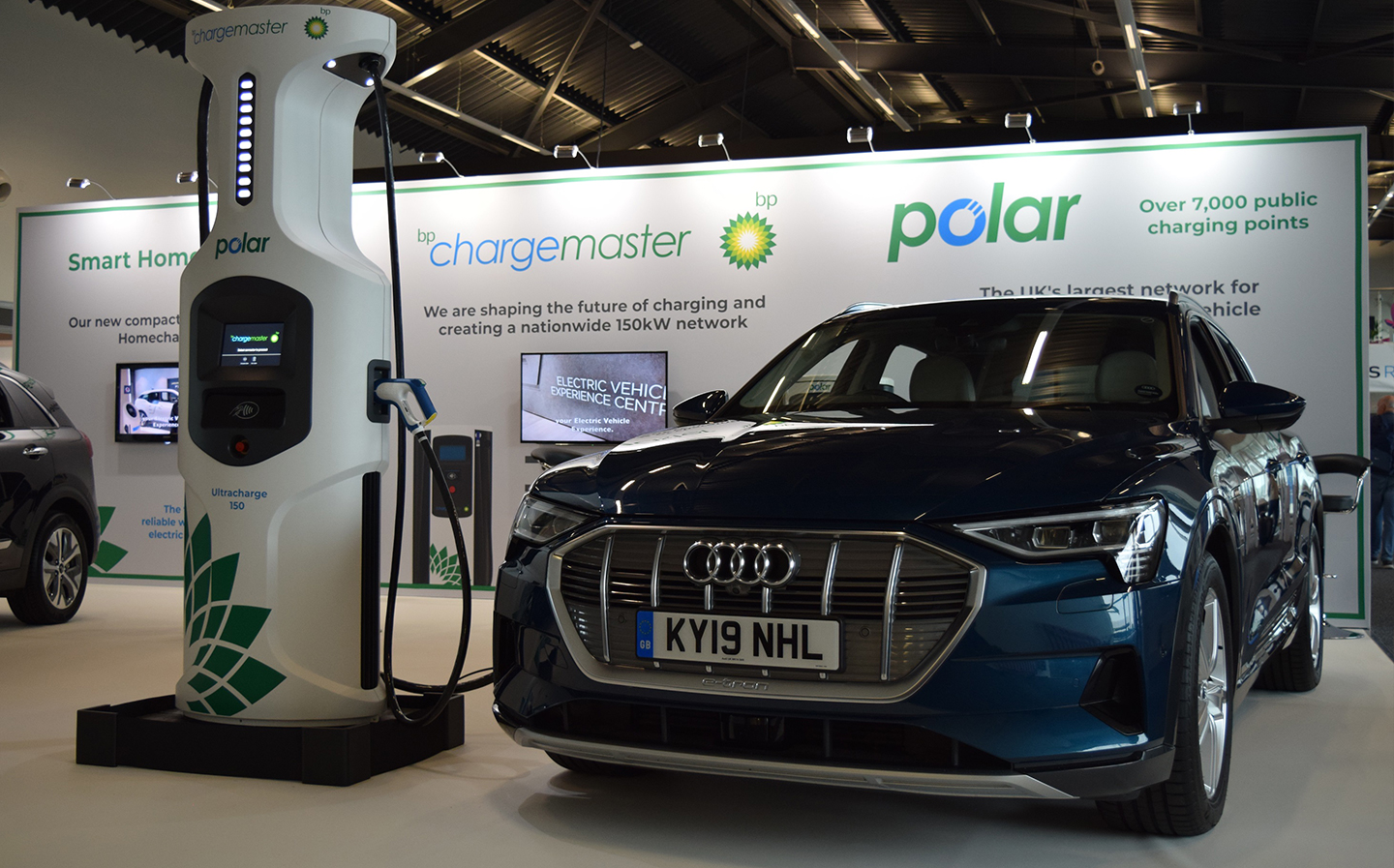Government tells charging point makers to add ‘pay as you go’ card payment option
No more faffing around with multiple subscriptions and apps
THE DAYS of standing in the rain while you frantically subscribe to an electric car charging service, download its app and then link it to a charging point before you can top up your vehicle’s battery could be coming to an end: the government said it wants to see all newly installed rapid and higher powered charging points provide debit or credit card payment by spring 2020.
The aim is to encourage uptake of the UK’s charging point network through widespread ‘pay as you go’ functionality, which would work in a similar way to paying for petrol or diesel, the Department for Transport (DfT) said.
For full access to the UK’s public charging network, electric car drivers currently have to sign up to multiple memberships, with access to the charging points requiring either a bespoke smartphone app or membership card. However, the government said it expects the industry to develop a “roaming solution across the charging network”, making it easier for drivers to plug in.
Last week the Prime Minister said she wanted to see the development of a national high speed recharging network, with the Office for Low Emission Vehicles to lead a review on the vision for the network.
The government added that if the market is too slow to deliver improvements across the entire network it was “prepared to intervene” by using powers in the Automated and Electric Vehicles Act.
Future of Mobility Minister, Michael Ellis, said: “The government’s vision is for the UK to have one of the best electric vehicle charging networks in the world, but we know the variety of payment methods at the moment is a source of frustration for drivers.
“It is crucial there are easy payment methods available to improve electric vehicle drivers’ experiences and give drivers choice. This will help even more people enjoy the benefits electric vehicles bring and speed up our journey to a zero-emission future.”
Polar, the UK’s largest public charging network for electric vehicles, said it will offer contactless bank card payment on all new 50kW rapid and 150kW ultra-fast chargers from today, and will retrofit all existing 50kW Ultracharge units to receive card payments over the next 12 months.
David Newton, CEO at BP Chargemaster, said: “As the operator of the UK’s largest public charging network, including the greatest number of rapid chargers, we support the government’s vision for all new rapid and ultra-fast chargers to support contactless bank card payment.
“We will be going one step further, not only by introducing this facility on all new 50kW and 150kW chargers from today, but also by committing to retrofit our existing UK-made rapid chargers with this technology over the next 12 months.”
Last year the government launched its Road to Zero strategy, which aims to “put the UK at the forefront of the design and manufacturing of zero emission vehicles”, and for all new cars and vans to be “effectively zero emission” by 2040.
Business and Industry Minister Andrew Stephenson said: “Initiatives like this are essential as we move towards a net zero economy, making it easier than ever for people to own and use electric vehicles.
“Investing in batteries, technology and infrastructure through our modern Industrial Strategy and Faraday battery challenge will ensure the UK leads the world in the global transition away from fossil fuels while supporting the future of our automotive industry.”
According to the DfT, the government and industry have supported the installation of over 20,000 publicly accessible charging points in the UK, including more than 2,000 rapid chargers, making it one of the largest charging networks in Europe. There are now more locations where you can charge your car than there are petrol stations, it said, with almost every motorway service area having at least one rapid charging point.
Independent data from Zap Map suggests there are currently 14,343 chargers in 8,994 locations, with 24,394 connectors (cables). While most electric car owners primarily plug in at the house or office, confidence in public infrastructure and the opportunity for those without access to home charging is understood to be key for mass adoption.
Hyundai: Plug-in electric cars are ‘quick fix’ but hydrogen must be part of future
All new cars sold in UK should be pure-electric by 2032, say MPs





